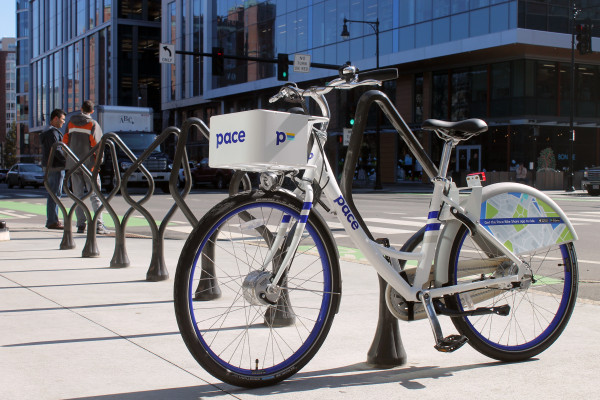
Zagster, the bike-share startup that raised a $15 million round last month, has laid off some employees, TechCrunch has learned. Zagster has since confirmed the layoffs, but has yet to comment on the number of those affected.
“Coming off the heels of our recent financing, we’ve re-structured to accelerate expansion of Pace, with a heavier focus on building in-market teams to greatly expand bike fleets, drive higher ridership, and partner with local businesses to sponsor Pace parking,” Zagster CEO Tim Ericson said in a statement to TechCrunch. “We did have to let a number of people go with roles not aligned to our Pace strategy. We’re extremely appreciative of their contributions and are helping them through the transition.”
The shift from docked to dockless bike-sharing is what prompted the layoffs, Ericson said. Within the U.S. dockless market, Ericson said he sees two models emerging: free-floating and lock-to.
“We believe the U.S. market will move to lock-to, with cities regulating and enforcing lock-to parking within three years,” Ericson said. “Zagster has a strong lead in lock-to, with exclusive rights to operate in more than 100 cities and colleges.”
Zagster’s Pace is one of the newer entrants to the bike-share space, which consists of a number of startups and larger companies battling for contracts with cities all over the world. Pace, which launched just a few months ago in December, currently operates in Tallahassee, Florida and Knoxville, Tennessee. With the funding, Zagster plans to launch Pace in additional cities this year.
Zagster also operates a bike-share solution for municipalities looking to offer their own city-specific services. Zagster, which launched in 2007, operates more than 200 bike-shares across 35 states in the U.S.
Zagster’s plan, Ericson said, is to convert its bike-shares to the Pace brand and model, with the ultimate goal of creating a nationwide dockless system across 35 states by the end of 2019. Over the next three months, Zagster plans to quadruple the Pace footprint by launching in six new cities.
This year has been full of bike-share news, between JUMP scoring an exclusive contract to operate its stationless bike-share service in San Francisco to both LimeBike and Spin unveiling their own take on e-bikes.


